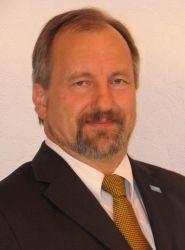Dr Georg Grossmann verzorgt de Hoogewerff Lezing 2014
De Hoogewerff Lezing 2014 wordt dit jaar gegeven door Dr Georg Grossmann tijdens NPS14 op woensdag 5 november 2014. Het congres, dat dit jaar het thema “Fundamentally Innovative” heft, wordt van 3 tot 5 November gehouden in DeFabrique in Utrecht. De titel van zijn lezing is: “Challenges of developing large scale industrial biotechnology in a chemical company”.
Het bestuur van de Stichting Hoogewerff-Fonds heeft in 2006 de jaarlijkse Hoogewerff Lezing ingesteld. De Hoogewerff Lezing wordt gehouden door een prominente kandidaat die landelijke aandacht weet te trekken en die een inspirerende lezing kan verzorgen over een algemeen onderwerp dat raakt aan de procestechnologie, zoals over energiebeleid, duurzaamheid, rol van biomassa en vergelijkbare thema’s. De Hoogewerff Lezing vormt een vast onderdeel van het jaarlijkse Nederlandse Procestechnologie Symposium (NPS).
Dr Georg Grossmann was born in 1953 in Heidelberg, Germany. He started to study chemistry at Heidelberg University in 1972 and earned the Diploma in 1978. He finished his doctoral studies at the Institute for Applied Physical Chemistry at the same university in 1982, with a thesis on the properties of biopolymers in solution. He then worked at the Nuclear Research Center Karlsruhe on process development for recycling of nuclear fuels. After joining BASF as a process research chemist in 1984, he held different management positions in manufacturing, strategic planning and technology evaluation. Beginning in 2003, as Vice President Corporate Engineering, he was responsible for engineering and execution of large capital projects globally. In 2012, he took over his current position as Vice President Process Development, actually returning to the research organization where he had started his career in BASF.
Summary of the lecture
On the background of increased importance of commercial bio – based production, the existing knowledge from decades of chemical research and manufacturing has to be expanded. Beyond the development of the own expertise, combined efforts of manufacturers, equipment vendors and universities are needed to further improve the basis for competitive, large scale production of biologicals.

